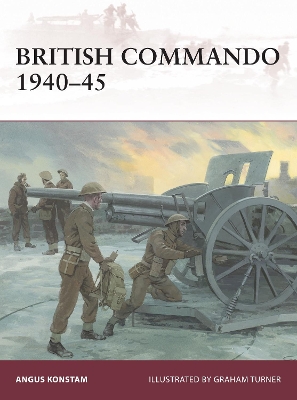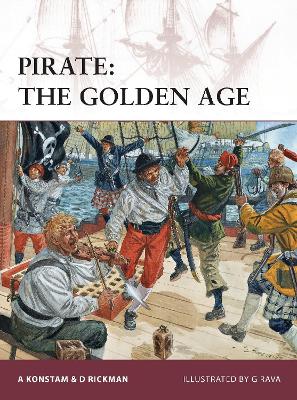Warrior
2 total works
With Hitler's army rampaging across Europe, Winston Churchill ordered the creation of a special fighting force – the Commandos. These valiant men were volunteers drawn from the ranks of the British Army, formed into a Special Service Brigade and put through a rigorous but highly effective training programme. Over the course of World War II they would see action in every major theatre of operation and are credited with numerous feats of gallantry during the D-Day landings. Although many units were disbanded after the war, the Royal Marine Commandos have maintained the standards of this elite fighting formation to the present day.
Angus Konstam explores the history of the Commandos during their formative years, providing detailed descriptions of their training, weapons and equipment. Battle reports are accompanied by specially commissioned Osprey artwork and historical photographs, offering readers an in-depth analysis of some of the most famous fighting units in the British Army's history.
Angus Konstam explores the history of the Commandos during their formative years, providing detailed descriptions of their training, weapons and equipment. Battle reports are accompanied by specially commissioned Osprey artwork and historical photographs, offering readers an in-depth analysis of some of the most famous fighting units in the British Army's history.
This book describes the life of a pirate in the early 18th century, the 'Golden Age of Piracy'. It charts the way these men (and a few women) were recruited, how they operated, what they looked like and what prospects their lives held. In the process the book strips away many of the myths associated with piracy to reveal the harsh realities of those who lived beyond the normal bounds of society. Written by pirate expert Angus Konstam, the book draws on decades of research into the subject, and pulls together information from a myriad of sources including official reports, contemporary newspaper reports, trial proceedings and court testimony last words on the scaffold, letters and diaries as well as archaeological evidence and relevant objects and artefacts from museum collections on both sides of the Atlantic. A must have for fans of the classic pirate stories or warfare in the early 18th century.

